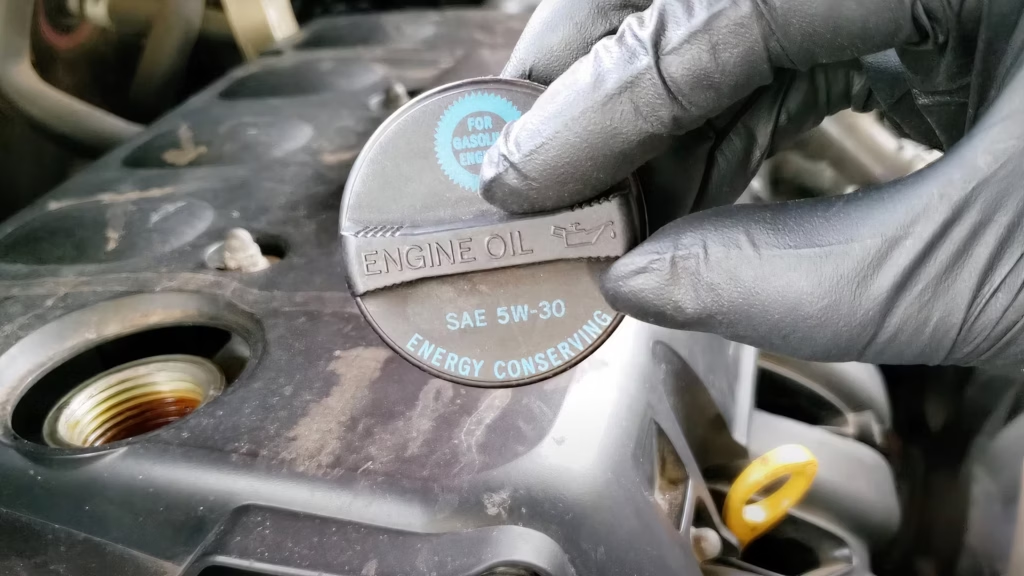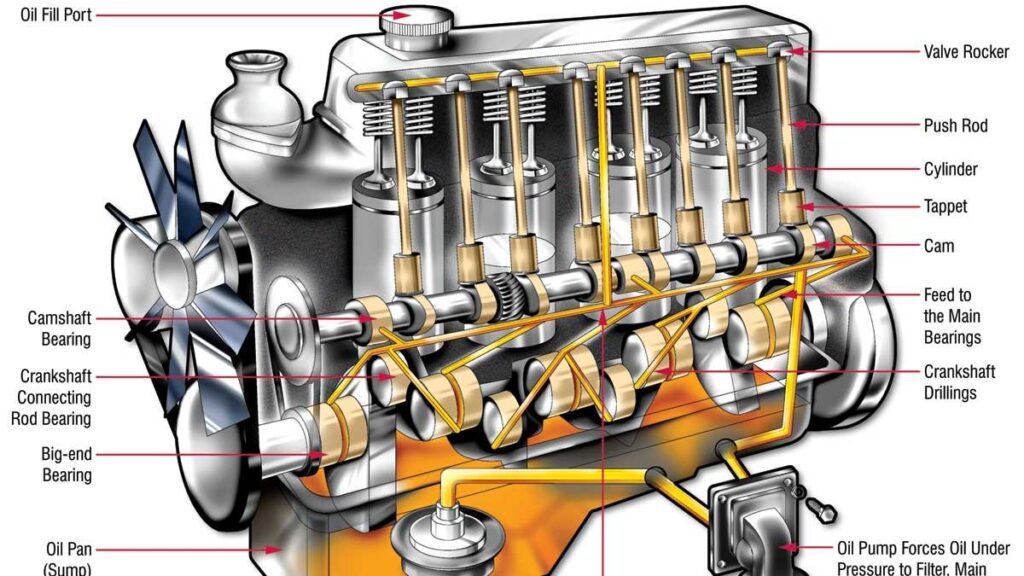Introduction
When you think about your car, you might imagine its sleek exterior, powerful engine, or comfortable interior. But there’s an unsung hero working tirelessly beneath the surface, protecting and preserving your vehicle’s most critical component: motor oil. Far more than just a lubricant, motor oil is the lifeblood of your car’s engine, performing a complex array of functions that keep your vehicle running smoothly, efficiently, and reliably.

What Exactly is Motor Oil?
At its most basic, motor oil is a specially formulated liquid designed to lubricate the moving parts inside an internal combustion engine. But calling it just a lubricant is like calling a Swiss Army knife just a knife. Modern motor oils are sophisticated chemical compounds, carefully engineered to meet the demanding requirements of today’s high-performance engines.
The Fundamental Functions of Motor Oil
1. Lubrication: Reducing Friction and Wear
The primary role of motor oil is to create a thin, protective film between moving metal parts. Inside an engine, dozens of components are constantly moving at high speeds and under extreme temperatures. Without oil, these parts would grind against each other, causing immediate and catastrophic wear.
Imagine two pieces of metal sliding against each other thousands of times per minute. Without lubrication, they would generate enormous heat, quickly wearing down and potentially destroying each other. Motor oil creates a microscopic barrier that allows these components to move smoothly, significantly reducing friction and preventing premature wear.

2. Heat Dissipation: Cooling the Engine
Engines generate tremendous heat during operation. While the cooling system manages overall engine temperature, motor oil plays a crucial supporting role in heat management. As oil circulates through the engine, it absorbs heat from various components and helps distribute it more evenly, preventing localized hot spots that could cause damage.
The oil’s ability to absorb and transfer heat is so important that some high-performance engines rely on oil cooling systems that are almost as sophisticated as traditional water-based cooling systems.
3. Cleaning the Engine
Motor oil is not just a lubricant—it’s also a cleaning agent. As it circulates, it picks up microscopic debris, metal particles, and carbon deposits that are byproducts of combustion. Modern motor oils contain detergent and dispersant additives that help suspend these contaminants, preventing them from settling and potentially causing damage.
These additives essentially act like a microscopic cleaning crew, constantly sweeping through the engine and keeping internal surfaces clean. Without this cleaning action, engines would quickly accumulate sludge and varnish that could compromise performance and longevity.
4. Protecting Against Corrosion
The inside of an engine is a harsh environment. Combustion processes, temperature fluctuations, and the presence of various metals create conditions ripe for corrosion. Motor oils contain anti-corrosion additives that form a protective layer on metal surfaces, preventing oxidation and extending the life of engine components.
5. Sealing and Improving Efficiency
Motor oil plays a surprising role in engine sealing. The oil film helps create a seal between pistons and cylinder walls, improving compression and overall engine efficiency. This sealing action helps prevent combustion gases from leaking past the piston rings and ensures maximum power transfer.
Understanding Oil Viscosity and Grades
Not all motor oils are created equal. The viscosity of oil—its resistance to flow—is crucial. Manufacturers specify recommended viscosity grades (like 5W-30 or 10W-40) that are designed to perform optimally under specific temperature ranges and engine conditions.
The first number (with a “W” for winter) indicates how the oil performs in cold temperatures, while the second number shows its performance at normal operating temperatures. Choosing the right oil viscosity is critical for ensuring proper engine protection and performance.
Synthetic vs. Conventional Oils
Modern motor oils come in two primary types: conventional (mineral-based) and synthetic. Synthetic oils are engineered at a molecular level, providing superior performance, better temperature resistance, and longer intervals between oil changes.
While more expensive, synthetic oils offer significant advantages, especially in extreme conditions. They flow better at low temperatures, maintain stability at high temperatures, and generally provide better overall engine protection.
Maintenance and Oil Changes
Regular oil changes are the single most important maintenance task for preserving your engine’s health. Over time, oil breaks down, loses its protective properties, and becomes contaminated. Most manufacturers recommend changing oil every 5,000 to 7,500 miles, though synthetic oils can often go longer.

Conclusion: Respect the Oil
Motor oil might seem like a mundane fluid, but it’s a marvel of engineering that plays a critical role in your vehicle’s performance and longevity. By understanding its functions and maintaining it properly, you can help ensure your car’s engine remains healthy, efficient, and reliable for years to come.
Next time you’re under the hood or at a service center, take a moment to appreciate this unsung hero of automotive technology. Your engine certainly does.